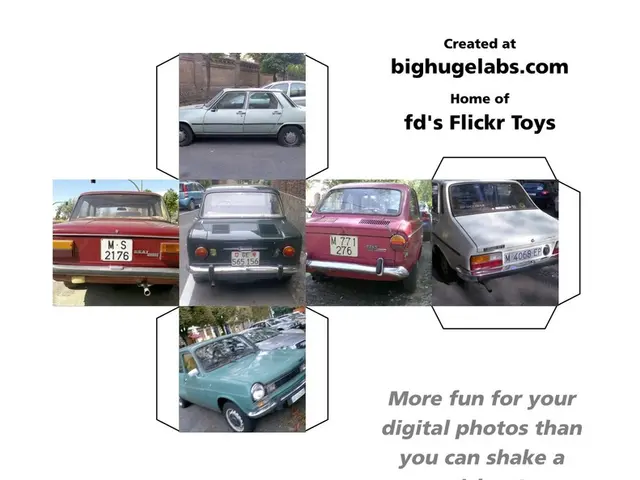Cars Failing TÜV Inspections Due to Minor Flaws - Cars fail TÜV inspections due to minor flaws
Your Car's Lifeline: Sailing Through Main Inspections Without a Hitch
- By Christian Hensen
- 3 Min
The dreaded policy of "one step forward, two steps back" strikes when approximately 20% of vehicles fail their annual main inspections. Only 67.8% manage to pass first time, with no defects - a feat worth striving for.
The testing agencies, such as TÜV, Dekra, or GTÜ, categorize vehicles' issues into four main groups. A clean bill of health means a smooth sail - a sticker, and that's it. "Minor defects" can be anything from scratched mirrors to a faulty license plate light; these nits can be noted but are usually expected to be remedied without requiring a re-examination.
However, "major defects" demand attention - if tires are bald, brakes faulty, or supporting parts rusted, the vehicle fails. You'll then have four weeks to mend the issue and re-present the vehicle for a re-examination. With that timeframe, mobility is still allowed; just ensure proper repair upon your return, and a new sticker will be yours.
Matters become more dire with "dangerous defects." Defects that "directly and immediately endanger traffic or the environment" will result in a refused sticker. Moreover, if a 'dangerous condition' is noted in the test report, the vehicle can only be driven home or to the workshop. Within a month, the car can be re-presented; if everything satisfies the examiner, you'll receive a sticker once more.
But if the examiner spots an "immediate danger to traffic," such as defective brakes, steering system, or severely rusted chassis, the vehicle can be immobilized on the spot. That's it for road traversing - immediate disqualification from the commute circus.
Triumphing Over Trivial Defects, and Securing a Sticker
To dodge a re-examination and acquire that coveted new sticker, TÜV extends a helping hand - in checklist form. It isn't rocket science; some matters demand a cursory glance, while others are easily verifiable. Here's a rundown:
- Are all lights in working order, both inside and out?
- Are all glasses (headlights, windows) undamaged?
- Are the windshield wipers and washer working?
- Does the car stop when the brakes are applied?
- Does the horn honk?
- Is the car's engine compartment spotlessly dry?
- How deep is the remaining tire profile?
- Are the warning triangle, vest, and first aid kit in the car, with valid expiration dates?
- Does anything light up on the dashboard during the drive?
- In case of modifications: Do you have all the papers?
Check everything off, and winning the main inspection is as good as a done deal. It's easiest to get the sticker as part of a routine inspection at the workshop; they're more likely to spot and fix any issues prior to the examiner's arrival.
There are some quirks during the main inspection that might slip your mind, such as so-called blind-spot mirrors that inspectors will ask you to remove. Or, according to "Auto Bild," a missing sun visor in a convertible could potentially result in a minor defect.
Inspectors also disfavor films on the front windows, painted headlight covers, or seemingly suitable LED bulbs without explicit approval for the specific vehicle.
- TÜV
- Auto
- Vehicle
- Main inspection
- To ensure success in the main inspection and avoid a re-examination, it's crucial to check if your vehicle adheres to the community policy regarding the use of blind-spot mirrors, sun visors in convertibles, and modifications, as these factors can potentially cause minor defects.
- In an effort to pass the main inspection without any financial setbacks, vocational training in the automotive industry can provide valuable knowledge about the industry standards, deemed necessary by TÜV, to keep your vehicle up-to-date and compliant with the regulations, which might subsequently save you from costly repairs or re-examinations.








